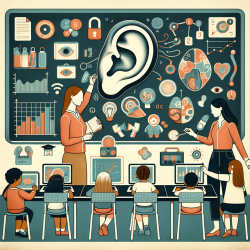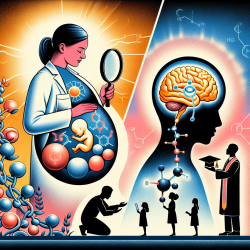Introduction
Metacognition, or 'thinking about one's thinking,' is a foundational skill that significantly impacts academic success. While much of the research has focused on older students, recent studies, such as "Thinking about Kindergarten thinking: A mixed methods study," highlight the importance of developing metacognitive skills in early childhood education. This blog explores the findings of this study and offers practical insights for educators aiming to enhance metacognitive practices in Kindergarten classrooms.
Understanding Metacognition in Kindergarten
The study conducted by Braund (2022) in eight Kindergarten classrooms revealed that educators often have an incomplete understanding of metacognition. While some educators described it as "thinking about thinking," others recognized its multifaceted nature, including planning and reflective thinking. However, the study found that many educators struggled to implement metacognitive practices due to barriers such as large class sizes and varying developmental readiness among students.
Barriers to Developing Metacognition
Educators identified several barriers to fostering metacognitive skills in young children, including:
- Large classroom sizes and diverse student abilities.
- Developmental readiness, with some children being more reactive than reflective.
- Competing demands and a lack of time to focus on metacognitive practices.
Despite these challenges, educators expressed a strong desire to integrate metacognitive strategies into their teaching.
Strategies for Enhancing Metacognitive Skills
Even with an incomplete understanding of metacognition, educators in the study employed various strategies to promote metacognitive thinking:
- Explicit Modeling: Educators used think-aloud protocols to demonstrate their thought processes, helping students understand how to approach tasks.
- Feedback and Reflection: Providing feedback and encouraging students to reflect on their learning were common practices.
- Play-Based Learning: Some educators utilized play-based activities to encourage children to explore and verbalize their thought processes.
These strategies align with the study's findings that metacognitive skills can be developed through explicit instruction and practice.
Implications for Educators
The study underscores the need for professional development opportunities that provide educators with concrete examples of metacognitive practices suitable for young learners. By enhancing their understanding of metacognition, educators can better support the development of these crucial skills in their students.
Conclusion
Developing metacognitive skills in Kindergarten is essential for laying the foundation for lifelong learning. While challenges exist, educators can overcome them by integrating explicit metacognitive strategies into their teaching practices. For more detailed insights, I encourage you to read the original research paper, Thinking about Kindergarten thinking: A mixed methods study.










